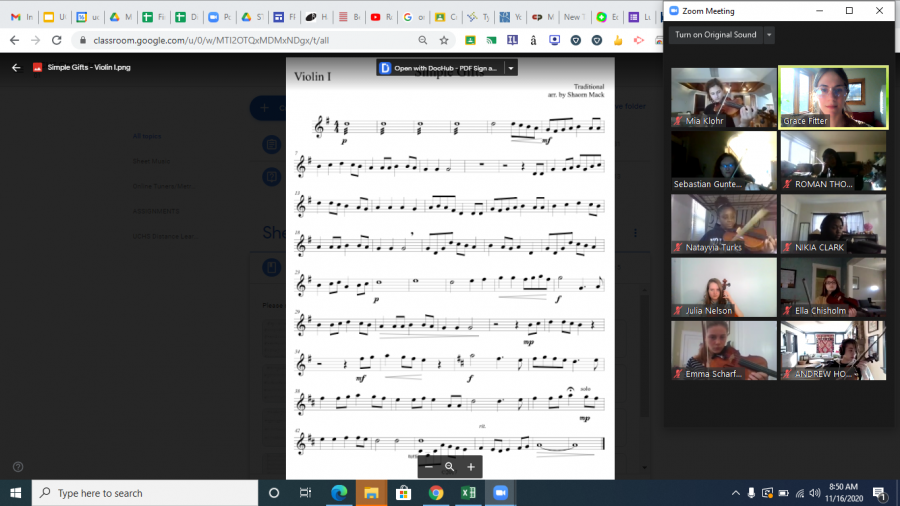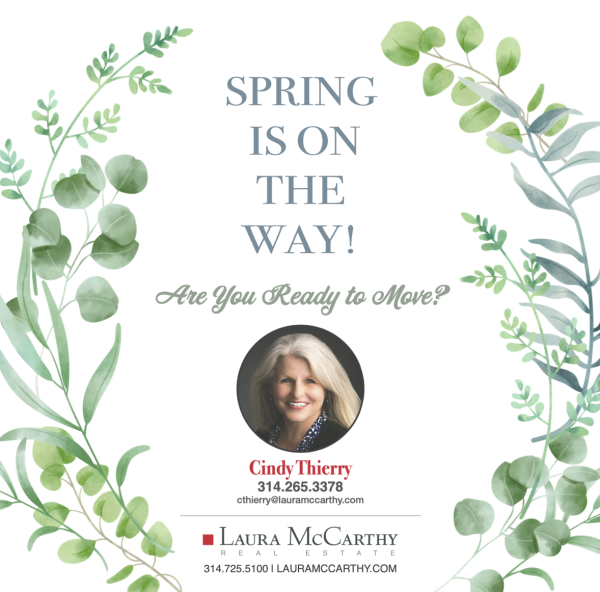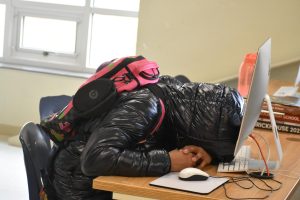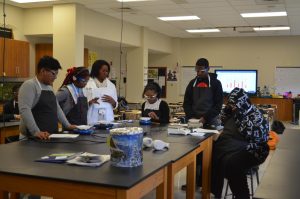Orchestra class evolves with distance learning
November 17, 2020
Imagine playing in a musical ensemble without being able to hear the rest of the instruments. Thanks to distance learning during the COVID-19 pandemic, students in orchestra don’t have to imagine this scenario. The adjusted school day has been a set-back for the orchestra class and proved the vulnerability of an ensemble.
“One of the biggest differences is that the students are not able to play their instruments together, in the way that they would in person, because of internet delays and it’s just the way that Zoom works,” Grace Fitter, orchestra teacher, said.
Although Zoom is designed for big groups, the sound system is not equipped for music classes, since only the loudest person gets broadcasted. In Fitter’s class, students go to breakout rooms based on their instruments, however, only one student is allowed to play while the others mute themselves and play along, following the leader of the group.
“So the students are not able to get the context of what their individual sound sounds like within the rest of their group, and within the rest of the ensemble,” Fitter said. “And that I think is the biggest piece that’s missing.”
Fitter is also worried about the progress of the students’ playing skills due to distance learning and the inability to play as a group.
“I’m worried about students not being able to get their learning needs met,” Fitter said. “Because I am not able to assess in the way that I would assess in person. I am not able to encourage, and provide feedback and communicate energy in the same way I would in person.”
With the complexities of an online music class, students have also expressed their concerns about progression and how they’re adjusting to the new environment of playing solo.
“I am a bit worried that when we go back to school, I won’t be as good since we don’t play as much, unlike last year when we played every day,” Xeta O’Hara, sophomore, said.
Students haven’t experienced a normal orchestra class this school year and the pressures of responsibilities have begun to distress and engulf an extra amount of dedication. Due to the minimal amount of play time in class, they’ve had to find extra time in addition to their regular practice to play, and are relying on themselves for feedback.
“It’s definitely difficult trying to find time during the day to practice,” O’Hara said.
On a positive note, students have been able to engage more in theory work, discuss what they’re learning and connect it to the music they play. In addition, Fitter plans on inviting multiple guest speakers to join their class in order to gain a different perspective and teaching style.
“I have enjoyed the opportunity to incorporate more reading, more writing, more just kind of research and inquiry, and all of that probably sounds very dull but I’ve enjoyed encouraging students to explore, and advocate for their needs, and go looking in search of information,” Fitter said. “Something that I would like to incorporate and I’m hoping actually materializes this week is the use of having guest artist musicians join Zoom classes, offer master classes and provide feedback to students.”
Although this is Fitter’s first year at U. City, she has been teaching for five years. Dealing with the technical issues in a more foreign environment has proven to be a challenge.
“I am not a first-year teacher, but circumstances of starting a new school year, in a completely distanced format, given the restrictions of the global pandemic, I have very much felt like a first year teacher… because I have had to re-imagine the way I do my job, from the bottom to the top,” Fitter said.
Despite the complications, especially for an interactive class, students are persevering to develop their musical skills and attempting to sustain the ensemble and orchestra community.
“I’ve been writing things down often and that’s kind of been a new practice this year, given the circumstances,” Fitter said. “And that has actually been very nice, just to kind of see what has worked, see what could be expanded upon. So I think I’m going to continue to make changes all year long. And going into next year, depending on how that’s going to look, we may have to make more changes then. I guess we’ll call it an evolution, having to evolve as time goes on.”






































